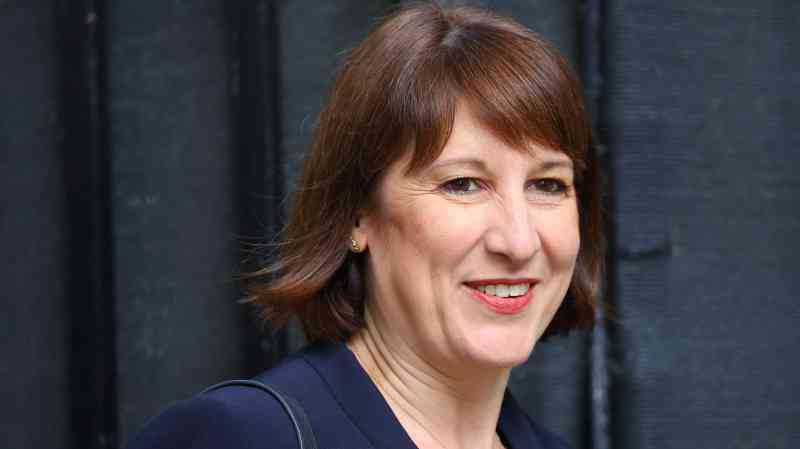Housing tie-up may not go to plan
Housing projects often look pretty on the architect’s plan. The “Made” partnership is no exception. The venture between Barratt Developments, Lloyds Banking Group and the government-owned Homes England is aiming to become a “master developer” for heaps of new homes — anywhere between 1,000 units and chunky plots topping 10,000.
And, on the face of it, what’s not to like? Developments of this size would have a meaningful impact on the government’s manifesto pledge to see 1.5 million new homes built this parliament. In fact, at the top end of the scale, Made’s schemes could easily form part of Labour’s plans for new towns: the focus of a fresh taskforce led by the former BBC chairman, Sir Michael Lyons.
The trio have complementary expertise. Housebuilder Barratt already handles biggish projects, such as its 2,450-home Kingsbrook scheme in Aylesbury. Apart from bringing finance, Lloyds is pushing into the housing development via its Citra Living rental wing, with around 2,000 homes. And Homes England is the government’s “housing and regeneration agency”, so a possible conduit for state-owned land that could be developed.
Together, the trio plan to drive large sites through all the planning hoopla that Labour says it’s reforming — potentially opening up parts of projects to smaller builders that typically can’t afford to get involved in big schemes. And this is no talking shop: the trio are each chipping in £50 million of equity.
So, in theory, a useful venture. Even so, two things stand out. First, there’ll be no quick results. And, second, the other housebuilders on which big schemes will rely may see the whole thing as an uncompetitive pro-Barratt stitch-up.
Anthony Codling, an analyst at RBC Europe, says he doesn’t expect “any legal completions” from Made “until 2028-29 at the earliest”. And even if brownfield sites may be less of a headache, not everyone wants “new garden village-style communities” next door — especially if they’re 10,000-plus projects en route to becoming a mini Milton Keynes.
The bigger the scheme, the more likely the local backlash, as the 600 residents of Tempsford, Bedfordshire, may yet prove. Their village, nicely located between the employment centres of London, Oxford and Cambridge, has been identified by one think tank as the ideal spot for a new town: the sort of issue that may come to test Sir Keir Starmer’s line that the government “is going to have to be unpopular”. Word is that Made will focus on the Midlands and the north where there may be less local opposition. But most housing need is in the south.
On top, aren’t there competition issues over a Barratt venture being funded by £50 million of taxpayers’ money — not least when Made is being led by Barratt’s Stephen Kinsella, ex of Homes England? Yes, Barratt aligning itself with the government may be “shrewd”, as Goodbody analysts noted — even if its shares rose only 0.6 per cent to 495½p. Yet, as one rival put it, “Homes England has put £50 million of public money into a joint venture that seems to allow Barratt to get preferential access to more land and decide whether to build it out or sell it”.
Bigger schemes will need multiple developers. But will rivals want to bid against Barratt for work on sites that Made gets through planning? Or where a Barratt joint venture not only gets to see a competitor’s bid but awards the contract? And if Barratt doesn’t bid, what does that say about the site? It could be harder than it looks for Made to bring big projects home.
Dishing out pain
Forget the “Glazed Smashed Burger”. What about the glazed smashed shareholders? The crew that backed TGI Fridays’ UK franchisee, Hostmore, look as fried as some of the food. Less than three years after the business was spun off from Electra Private Equity in November 2021 at 147p, it’s had its chips: a warning that it’ll be “wound up and delisted”, with zip for the shareholders, sending the shares down 91 per cent to 0.87p for a (now too high) market cap of £1.1 million.
And to think it was only in April that Hostmore was planning a reverse takeover of America’s TGI Fridays Inc for £177 million, including debts. That now looks not so much an acquisition but an attempt to rescue both businesses. The bigger US outfit was subject to a whole business securitisation. And, apparently after failing to file documents on time with its bondholders, it has lost day-to-day control of most of its assets — not least franchise agreement royalties and intellectual property on which the reverse takeover depended.
The upshot? Without that “highly cash-generative royalty stream”, the deal is off. Worse, accident-prone Hostmore has nothing else on the menu. It was looking at becoming an asset-lite restaurateur by selling the leases to its 87 UK eateries but none of the bids it got even cover its £29.7 million net debts. Even Julie McEwan, the chief executive, looks to have been blindsided. Via a monthly share purchase plan, she bought 45,771 shares at 10p as recently as August 30, taking her stake up to 800,000. No accounting for taste.
In the slow lane
A jolt for Europe’s gigafactory dreams. Northvolt has raised $15 billion from investors, including the carmakers BMW and Volkswagen. But it still hasn’t got a resilient enough business to handle some of the same players slowing down their electric car plans or fierce competition from Asian rivals. Proof, perhaps, of how daft the UK government was in thinking that the start-up Britishvolt could compete. Or that it was the right vehicle for £100 million of public money. Attempts to pick winners rarely produce a business that motors.






